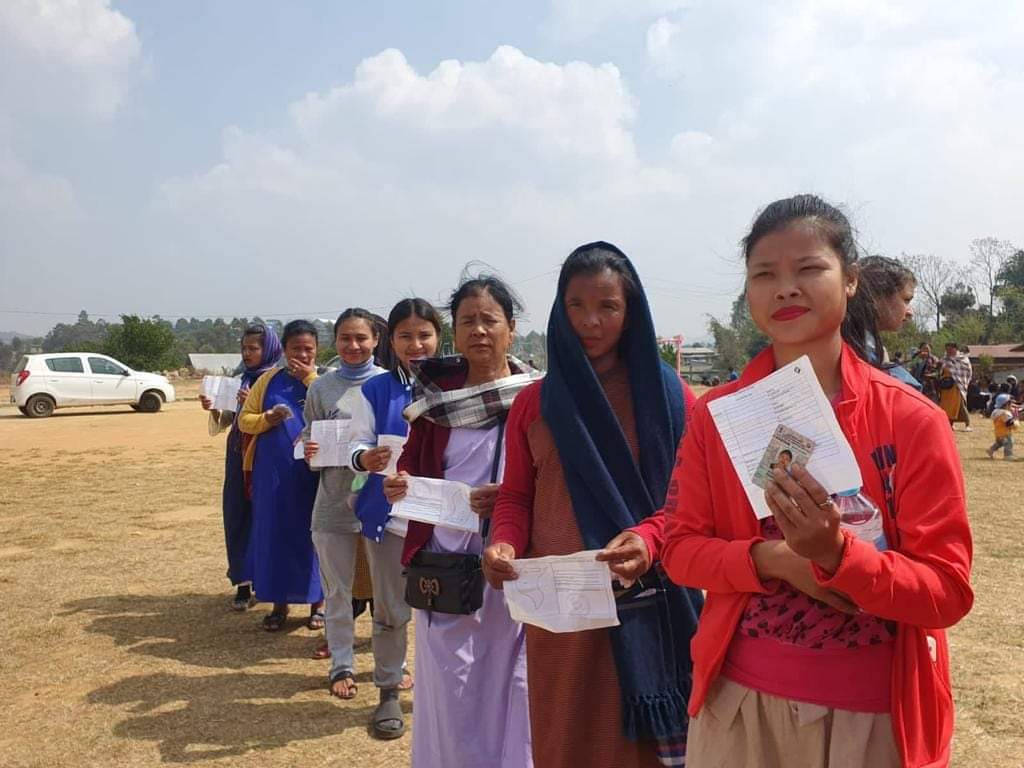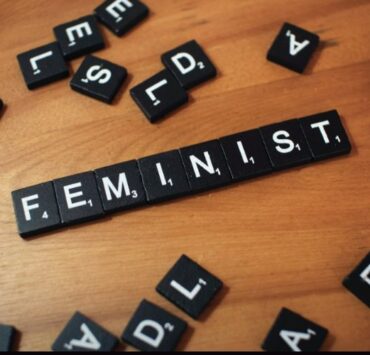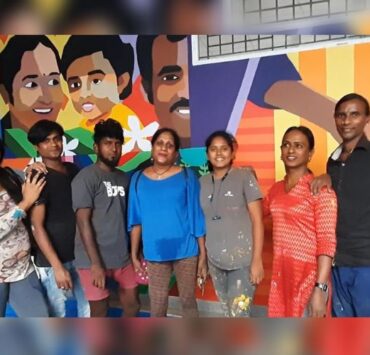
By Durba Ghosh

The heat and dust of the recently concluded Assembly elections in the three North Eastern states of Meghalaya, Nagaland and Tripura are yet to settle down, but what is already clear is the poor representation of women in the new legislatures. Of the total of 61 female candidates who contested the polls last month, only 14 managed to win across all three states.
In matrilineal Meghalaya, a record number of 36 women were in the fray this time but only three managed to make the mark, accounting for a lowly nine per cent of the total number of contesting candidates. The number of female members of the state Assembly this time is, sadly, lower than the four who became MLAs during the previous poll.
Nagaland scripted history this year with two of the four contesting women making it as lawmakers for the first time in 60 years of statehood – even though they constitute a mere 1.8 per cent of the total number of contesting candidates. Tripura had a better score, with nine of the 21 women who contested elections making it to the Assembly – still just six per cent of the total number of contesting candidates.
The representation of women in the newly formed cabinets in the three states is also abysmally low, with just one in each of the three states being made ministers. According to experts this is mere tokenism. In Meghalaya and Tripura, veterans Dr M Ampareen Lyngdoh and Santana Chakma made it to the respective cabinets, while in Nagaland first-timer Salhoutuono Kruse found a place in the council of ministers.The only heartening aspect of the representation of the women in the newly formed governments is that they all belong to indigenous communities.
It must be noted, however, that the women candidates who managed to make it to their respective state Assemblies belong to the ruling parties, for the most part. In Meghalaya, two of the women who won are from the ruling National People’s Party (NPP), while one is from the Trinamool Congress. In Nagaland, both winners belong to the ruling Nationalist Democratic Progressive Party (NDPP). In Tripura, eight of the nine winning female candidates belong to the ruling BJP, while one is from the Tipra Motha, the new regional political party which was contesting Assembly elections for the first time this year.
It is a matter of concern that so few opposition voices have made it to the legislatures. It remains to be seen whether the elected women belonging to the ruling parties can highlight issues that really matter, particularly those related to gender, in their states.
A representative democracy calls for an adequate presence of women in politics. So the fact that their presence in elected bodies remains low is indeed a serious matter. Representation in legislatures is essential for political empowerment since it enables participation in the law-making process, playing a vital role in raising questions and taking part in debates about policies and governance, and demanding accountability in government.
The poor representation of women in elected bodies presents a skewed picture of the status of women in these states, at variance with key indicators such as sex ratio and literacy (both higher than the national average). Women’s participation in the poll process as voters is also high in the three states. In Meghalaya, the number of female voters is marginally higher than that of male voters, while in Nagaland the number of male and female voters is nearly equal. In Tripura, the number of women in the state’s electorate is lower, but there was a higher voter turnout among women than men this time.
There is, thus, a dichotomy between the increase in women’s participation as voters in elections, as well as their involvement in other political activities, and their minimal presence as elected representatives in legislatures.
In this context the question that often arises is whether the giving of tickets to women, especially by the ruling party, is just symbolic, considering that they remain in the periphery of the political space in the North East – despite the prevailing view that women in the region are generally in a better position than their counterparts in other states. Meghalaya, for example, is known for its matrilineal society.
Noted journalist Patricia Mukhim points out that there are definite fault lines in matriliny, as can be seen in the under-representation of women in politics even in states with matrilineal societies. The highest ever representation of women in the Meghalaya Legislative Assembly was recorded in 2013, when five women MLAs were elected to the house of 60, making up 8.3 per cent of the total number of seats.
“Matriliny does not guarantee political empowerment and women have never been part of the local governance system,” she said. The traditional village institutions of Meghalaya, called the ‘Dorbar Shnong’, are exclusive male domains which women can never head. According to Mukhim, “Women are represented in the ‘Dorbar Shnong’ by male members of the family. They may participate in meetings but are not part of the decision-making processes. This is a contradiction in terms.”
In Tripura, however, women’s representation in panchayat and civic bodies is very encouraging, with several grassroot institutions headed by women, according to activist Nandita Dutta. She is of the opinion that the attitudes of girls and women towards politics is at least partly to blame for their poor representation in legislatures. “Educated girls and women are less interested in taking up politics as a full time profession since it involves a lot of volatility,” she said. “Girls always try to get a secure job – in the government or the private sector. They do not want to be an MLA or an MP.”
Nevertheless, there was some speculation after the recent state election that Pratima Bhoumik of the Bharatiya Janata Party, at present the Union Minister of State for Empowerment and Social Justice, was being considered for the post of Chief Minister. It remains to be seen whether that short-lived prospect holds out hope for a better deal for women in Tripura politics in the future.
In Nagaland, it has been an uphill task for women to create a political space for themselves. The unprecedented election of two women in the recent Assembly polls and the one woman lately nominated to the Rajya Sabha make up the sum total of female representation in political positions. Women activists in the state have been consistently clamouring for political participation that is not based ‘money, muscle and weapons of violence,’ the customary routes to the assertion of male dominance and power. They point out that their mission is to create space for everyone, to strengthen and support each other so that more women aspirants can enter the electoral fray.
Women in these states may have played a very marginal role in the actual political arena where policy decisions are taken by male leaders, often denying them the deserved space. They have, however, been mobilised for party work, performing their roles as the most proactive campaigners and polling agents for male candidates.
It is clear that political parties in the region can no longer ignore the importance of women in the poll process. This is why most parties go all out to woo them before the polls through their respective manifestos. All of them make promises galore to promote the welfare of women and the girl child, with education, healthcare, employment, safety and security being the highlights of their gender agenda.
In the run-up to the elections the ruling parties in all three states highlighted the largesse they have bestowed on women, particularly in terms of providing employment by increasing the number of Self Help Groups in their respective states. Measures such as the provision of free education for girls, efforts to improve maternal and infant mortality rates, attempts to increase police help desks for women and induct more women into the police force, and so on, were also highlighted.
However, the election season ended on a somewhat sour note in Meghalaya with the unopposed election of MLA Thomas A Sangma to the post of Speaker of the incoming Assembly despite the fact that an FIR was registered against him in June 2021 after he was accused of multiple counts of rape by one woman.
In a more positive development, the Tipra Motha, the latest entrant in Tripura’s electoral politics, created quite a flutter during the campaign and generated much interest among political and gender activists as the only party that talked about ensuring ”equal respect and opportunities” for the LGBQTI community in the state. Motha leader Pradyot Bikram Manikya Debbarma claimed that they would work towards safeguarding the rights of the people from the third gender and LGBTQI community as part of their “outreach to all people irrespective of religion, ethnicity, caste, class, economic status and orientation of any kind”.




